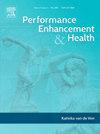Aromatase inhibitors as a potential harm reduction strategy for men with low-normal testosterone at risk of non-prescribed androgen use
IF 3.7
Q2 HOSPITALITY, LEISURE, SPORT & TOURISM
引用次数: 0
Abstract
Men with low-normal testosterone often present with symptoms such as low energy, reduced libido, and mood disturbances. However, guidelines restrict testosterone therapy (TTh) to men with confirmed hypogonadism, leaving this subgroup without clear treatment options. Frustrated, some turn to illicit testosterone, often at supraphysiological doses, risking long-term endocrine disruption, infertility, and cardiovascular disease. This perspective explores aromatase inhibitors (AIs) as a harm reduction strategy for such men. By inhibiting estrogen-mediated feedback, AIs stimulate endogenous testosterone production while preserving hypothalamic-pituitary-gonadal (HPG) axis integrity. In addition to potential symptom relief, AIs can be used diagnostically to assess HPG responsiveness and the relationship between testosterone levels and symptoms. They may also serve an educational role, helping patients better understand the hormonal contribution to their complaints and avoid premature self-treatment. The response to AIs is variable, and their long-term safety in men remains uncertain. In addition, the use of AIs is off-label and lacks robust clinical evidence. Well-designed trials are needed to determine whether AIs are truly a viable harm reduction strategy and eventually reduce the incidence of self-initiated TTh. Until then, a cautious, individualized approach is essential—yet in selected cases, AIs may offer a supervised alternative that prevents progression to unregulated testosterone use.
芳香酶抑制剂作为一种潜在的危害降低策略男性低正常睾丸激素在非处方雄激素使用的风险
睾酮正常值低的男性通常表现为精力不足、性欲减退和情绪紊乱等症状。然而,指南将睾酮治疗(TTh)限制在确诊性腺功能减退的男性,这使得这一亚组没有明确的治疗选择。有些人感到沮丧,转而使用非法的睾酮,通常是超生理剂量,冒着长期内分泌紊乱、不孕症和心血管疾病的风险。这一观点探讨芳香酶抑制剂(AIs)作为一种危害减少策略,为这些人。通过抑制雌激素介导的反馈,AIs刺激内源性睾酮产生,同时保持下丘脑-垂体-性腺(HPG)轴的完整性。除了潜在的症状缓解外,ai还可用于诊断性评估HPG反应性以及睾酮水平与症状之间的关系。它们也可能起到教育作用,帮助患者更好地了解激素对他们的抱怨的影响,避免过早的自我治疗。对人工智能的反应是不同的,它们在男性中的长期安全性仍然不确定。此外,人工智能的使用是标签外的,缺乏强有力的临床证据。需要精心设计的试验来确定人工智能是否真的是一种可行的减少危害的策略,并最终减少自我发起的th的发生率。在此之前,一种谨慎的、个性化的方法是必要的,但在某些情况下,人工智能可能提供一种有监督的替代方案,以防止发展到不受管制的睾酮使用。
本文章由计算机程序翻译,如有差异,请以英文原文为准。
求助全文
约1分钟内获得全文
求助全文
来源期刊

Performance enhancement and health
Social Sciences-Health (social science)
CiteScore
4.70
自引率
0.00%
发文量
27
审稿时长
57 days
 求助内容:
求助内容: 应助结果提醒方式:
应助结果提醒方式:


